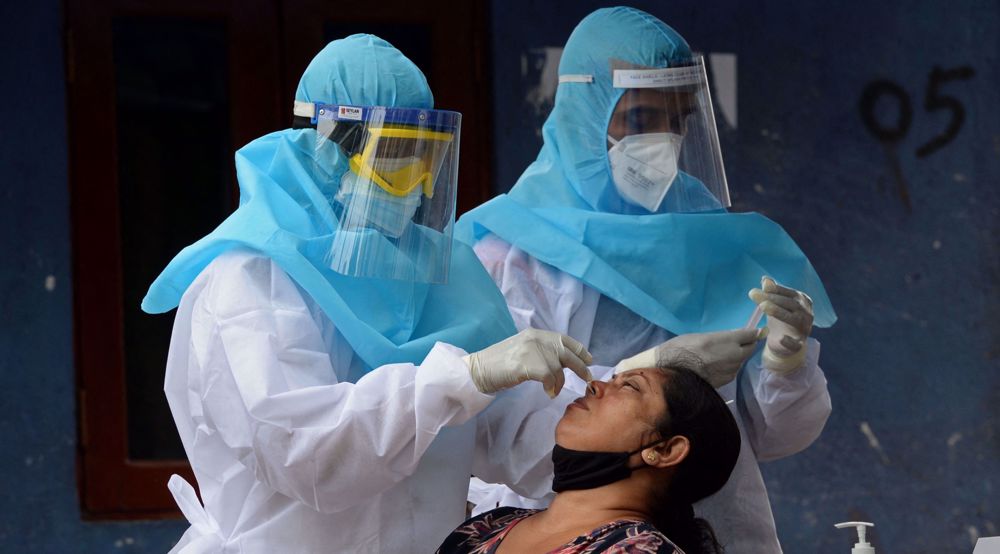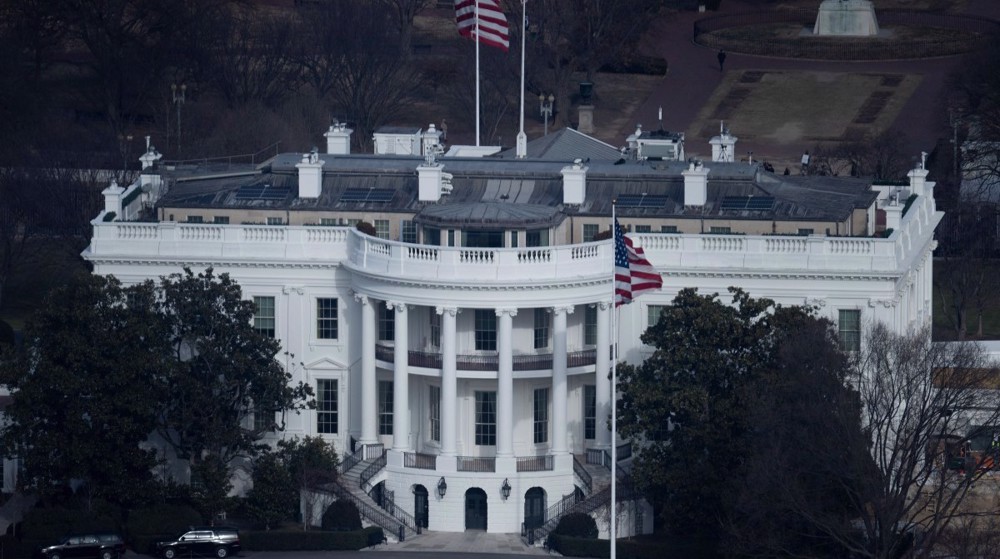WHO chief says at least 115,000 health workers died from COVID, stresses access to more vaccines worldwide
At least 115,000 health and care workers have died from COVID-19 since the beginning of the pandemic, the chief of the World Health Organization says, calling for a dramatic scale-up of vaccination in all countries.
At the opening of the World Health Organization's main annual assembly, Director General Tedros Adhanom Ghebreyesus hailed the sacrifices made by health workers around the world to battle the pandemic.
"For almost 18 months, health and care workers all over the world have stood in the breach between life and death," he said, adding, "They have saved countless lives and fought for others who, despite their best efforts, slipped away.
"Many have themselves become infected, and while reporting is scant, we estimate that at least 115,000 health and care workers have paid the ultimate price in the service of others."
He said many health workers have since the start of the crisis felt "frustrated, helpless and unprotected, with a lack of access to personal protective equipment and vaccines."
And they are not alone. He described the overall inequity in access to vaccines as "scandalous," warning it was "perpetuating the pandemic."
More than 75 percent of all COVID-19 vaccines have gone to just 10 countries.
"The number of doses administered globally so far would have been enough to cover all health workers and older people if they had been distributed equitably," he said.

"There is no diplomatic way to say it: that small group of countries that make and buy the majority of the world's vaccines control the fate of the rest of the world."
He urged those countries that have large stocks of vaccines to share them, and greater cooperation to scale up production and distribution of the jabs.
The WHO and others have created COVAX, a global vaccine-sharing program, but it remains severely underfunded and has faced significant supply shortages, delaying efforts to roll out jabs in poorer countries.
"We have shipped every single one of the 72 million doses we have been able to get our hands on so far to 125 countries and economies," Tedros said.
But he lamented that those doses were only enough to barely cover one percent of the combined populations in those countries.
The WHO chief stressed the need to urgently fix the imbalance.
"Today, I'm calling on member states to support a massive push to vaccinate at least 10 percent of the population of every country by September," he said, calling for the coverage to be expanded to 30 percent by the end of the year.
'We are at war' with COVID: UN chief
The world is "at war" against COVID-19, the UN chief said Monday, calling for the application of wartime logic to the inequitable access to the weapons needed to fight the pandemic.
United Nations Secretary General Antonio Guterres decried the "tsunami of suffering" sparked by the coronavirus crisis.
Addressing the opening of the World Health Organization's main annual assembly of member states, he pointed out that more than 3.4 million people have died and some 500 million jobs had disappeared since the disease first surfaced in China in late 2019.
"The most vulnerable are suffering most, and I fear this is far from over," Guterres said, stressing the ongoing dangers of "a two-speed global response."
"Sadly, unless we act now, we face a situation in which rich countries vaccinate the majority of their people and open their economies, while the virus continues to cause deep suffering by circling and mutating in the poorest countries," he said.
"Further spikes and surges could claim hundreds of thousands of lives, and slow the global economic recovery," he said, insisting that "COVID-19 cannot be beaten one country at a time."
Faced with this dire situation, Guterres urged recognition of the fact that "we are at war with a virus."

"We need the logic and urgency of a war economy, to boost the capacity of our weapons," he said.
The UN chief last week called on the G20 to set up a task force that brings together all countries with vaccine production capacities and others who can help boost manufacturing of vaccines and other tools needed to battle COVID.
"It should aim to at least double manufacturing capacity by exploring all options, from voluntary licenses and technology transfers to patent pooling and flexibility on intellectual property rights," he said.
The task force should also address equitable global distribution of vaccines, treatments and diagnostics.
To date, only 0.3 percent of COVID vaccine doses have been administered in the world's poorest countries, which are home to nearly 10 percent of the global population.
In addition to battling COVID-19, Guterres stressed the importance of preparing for the next pandemic, backing a range of recommendations put before the assembly for reform and strengthening of the WHO and of the global health system.
"The world needs political commitment at the highest level to transform the existing system," he said.
"The WHO must be at the heart of global pandemic preparedness. It needs sustainable and predictable resources, and it must be fully empowered to do the job demanded of it."
Guterres urged member states to decide a way forward to "take the bold decisions necessary to end this pandemic."
"COVID-19 must be a turning point."
(Source: Agencies)
Decades of broken promises, aggression, Israeli pressure leave Iran no reason to trust US: Analyst
Iran to unveil its first indigenous radar imaging satellite soon
North Korea's Kim says military will ‘widen fighting front’ in 2026
VIDEO | Propaganda channels promote fake death toll as Iran releases official victims' list of terror attack
Iran’s top security official to visit Oman amid preparations for next round of talks with US
VIDEO | Protests erupt across Australia over Israeli president's visit
VIDEO | Iran maps strategic future in 1st Congress on Foreign Policy and History of Foreign Relations
VIDEO | At least nine killed in multi-building collapse in Lebanon










 This makes it easy to access the Press TV website
This makes it easy to access the Press TV website